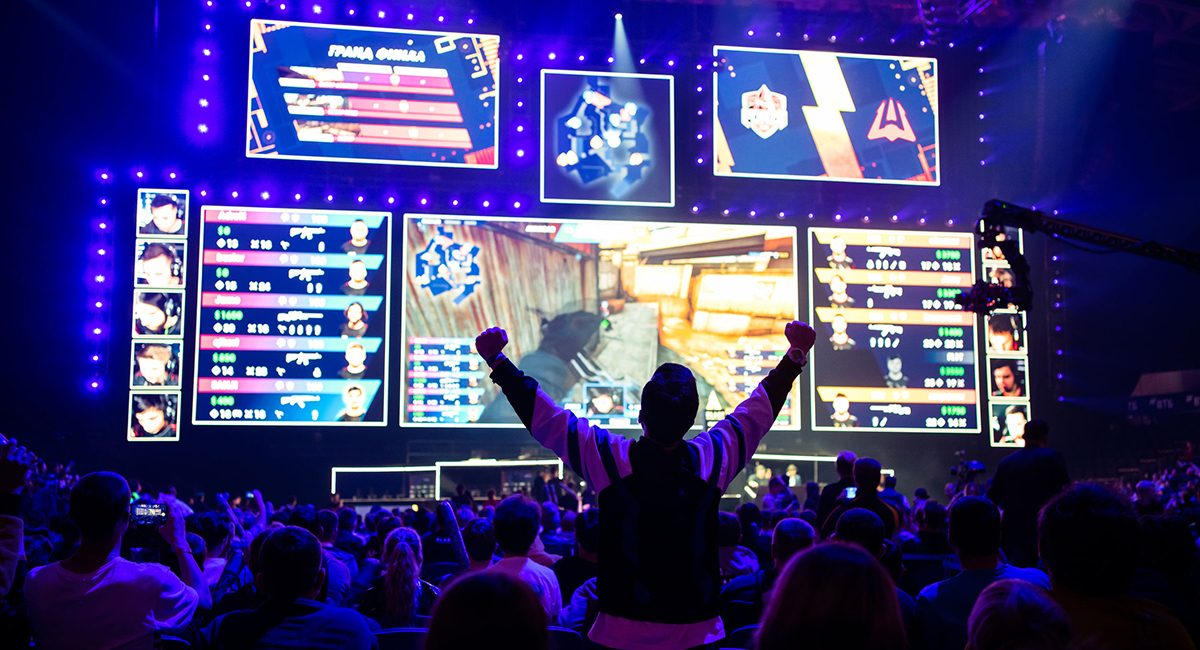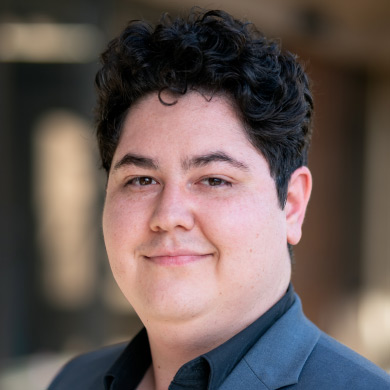In the age of digital connectivity and online communities, esports, the world of competitive video gaming, has emerged as a captivating global phenomenon. With esports as an indispensable part, the gaming industry now dwarfs all other forms of traditional media. In terms of revenue, the gaming industry is now bigger than traditional sports and larger than the music, film, and streaming industries combined. However, it’s not just the allure of virtual battlegrounds that is noteworthy; it’s also that esports provide a novel avenue for nations like Saudi Arabia to salvage their tarnished reputations and deflect global scrutiny.
Bread and Circuses
It is a tale as old as time—or at least as old as ancient Rome—distract people with spectacles, generate public approval, and divert attention away from the bleak reality of things. The Latin phrase “panem et circenses,” meaning “bread and circuses,” describes this tactic used by those in power. In the context of sports, not only is there a provision of entertainment, but there is a thick veneer of progress and prosperity that masks the deeper issues when governments pour millions of dollars into events.
"Sports washing" has emerged as the term referring to the strategy for nations, people, corporations, etc., to scrub away their tarnished reputations on the international stage. It is reminiscent of the more popular term “greenwashing,” which is “the act or practice of making a product, policy, activity, etc. appear to be more environmentally friendly or less environmentally damaging than it really is,” according to Merriam-Webster.
This practice is not limited to Saudi Arabia; other countries with questionable records have also employed similar tactics. The term gained prominence in the context of Qatar’s bid for the 2022 FIFA World Cup, where lavish stadiums and multimillion-dollar investments were seen as an attempt to whitewash the nation’s shameful human rights record.
Saudi Arabia’s Record
Saudi Arabia’s adoption of this playbook is most intriguing and troubling, with the nation positioning itself as a sports hub in the Middle East, attracting international events, athletes, and audiences. The Saudi sovereign wealth Public Investment Fund (PIF) owns a majority stake in several soccer clubs, hosted an F1 circuit, and has hosted various boxing and MMA events. The most notorious example thus far has been the LIV Golf Series, a tournament bankrolled by the PIF. With Crown Prince Mohammed bin Salman as its chairman, LIV Golf made its mark on international golf by poaching high-profile stars from the PGA by offering them ludicrously above-market salaries.
After reports purported that the Saudi Crown Prince was complicit in the murder of dissident journalist Jamal Khashoggi, reporters asked Greg Norman, former golf star and the public face of LIV, about bin Salman’s alleged connections with the killing. Norman responded, “We all make mistakes.”
After a brief but contentious coexistence, the PGA, DP World Tour (European PGA equivalent), and LIV agreed to join forces in a backroom deal, stunning the sports world. When asked about sportswashing criticisms, Crown Prince Mohammed bin Salman stated, "If sportswashing (is) going to increase my GDP by 1%, then we’ll continue doing sportswashing."
What is the next evolution in Saudi sportswashing? By all accounts, it is esports.
The Rise of Esports Washing
“Esports washing,” a concept that ought to be considered a noteworthy but distinct offshoot of traditional sportswashing, highlights the growing influence of esports as a tool for political maneuvering on the global stage. Esports washing is powerful, not only because of the relative novelty and prospects of reaching previously unreached demographics—young gamers—it is because Saudi Arabia already has a comparative advantage in the space.
In 2017, the Saudi Esports Federation (SEF) was created to fill the “role in evolution of gaming (sic) in the Kingdom.” The federation was to play a key part in Crown Prince Mohammed bin Salman’s “Saudi Arabia’s National Gaming and Esports Strategy.” The SEF is one of the few state sponsors of esports. According to its website, SEF “is the subject matter expert in Gaming and Esports that is coordinating government action” and “aims to develop the gaming industry in Saudi Arabia and established (sic) a long lasting and solid connection with the global industry.”
Saudi Arabia bolstered its influence in esports by acquiring ESL in 2022. ESL is the largest esports company in the world and was purchased by Savvy Games Group, a holding company owned by the PIF. ESL is not only a tournament organizer; it is also one of the most prominent esports production and broadcast companies and provides the FACEIT platform, which administers games for the most popular esports for both amateur and professional players with “22 million gamers in leagues, tournaments and ladders.”
The SEF managed to capture an even bigger market share of the esports industry with the fast rollout of “Gamers8.” Gamers8 became the banner under which esports tournaments would be hosted in Riyadh’s “gaming dreamland” facility. The inconspicuous-sounding name “Gamers8” created some distance between the SEF and the international esports world. In the run-up to the event, casual fans would likely not have known that Gamers8 was a front for Saudi-sponsored events.
The prize pool for Gamers8 tournaments is a staggering $45 million, divided among just a few esports like Dota 2, Counter-Strike: Global Offensive (CSGO), Rocket League, and others. With the combination of ESL and Gamers8 branded tournaments, Saudi-owned events make up most of the top esports competitions.
Near the end of August, the Gamers8 tournament for CSGO, one of the largest esports, was a standout. For starters, Team Falcons, a Saudi-owned team, appeared despite the team not usually qualifying for S-Tier (highest professional level) tournaments. International CSGO organizations never called out the obvious nepotism, and the oddity of their inclusion was never discussed.
A particularly disconcerting incident that spoke volumes about the ever-presence of politics in the air was the treatment of the Israeli players FlameZ, Spinx, and NertZ. Esports journalist Richard Lewis noted that whenever the big screen would highlight the Israelis, the players were subjected to a harsh chorus of boos from the Saudi audience. The fact that this occurred is itself unsettling, but perhaps worse was when the organizers took the extraordinary step of cutting the audio coming from the audience for the event’s internet broadcast. Strikingly, there was no acknowledgment or reference to this incident by the official tournament hosts or the international commentators other than an X post from Spinx thanking the organizers for bringing in 24/7 security guards for the players due to “the relationship between Israel and Saudi Arabia.”
While gamers worldwide were captivated by Saudi bread and circuses, few were taking notice of the unparalleled crisis at Saudi Arabia’s southern border. While the Gamers8 CSGO tournament was being broadcast, reports came out that Saudi border guards were systematically killing “at least hundreds” of Ethiopian migrants and asylum seekers trying to flee the Yemen-Saudi border area. Accounts detailed Saudi guards using explosives, shooting migrants “at close range,” including women and children, and horrific reports of sadistic guards asking the Ethiopian refugees which limbs they preferred to be shot. A Human Rights Watch report mentions that guards even used explosives on migrants fleeing back into Yemen.
Some might ponder the connection between the actions of Saudi Arabia and esports and wonder if such criticisms of Saudi “soft power” are guilt by association—but that is not the case. In Saudi Arabia, those intimately involved with these human rights abuses are the same people putting on the events. The aforementioned journalist Richard Lewis, among the very few to callout the industry for its Saudi dealings, lambasted such claims, saying:
Remember, the problem with this particular ownership group, the Savvy Gaming group and its despicable tendrils, which are under the soil of esports everywhere, even compromising seemingly benign podcasts...they’re the same people ordering [these killings]. There is no abstraction. The Crown Prince is the chairman of the board. His brother runs the esports division for the Saudi Arabian government. Those two entities ran Gamers8.
Behind the scenes, rumors are that by 2025, the ESL conglomerate hopes to have all final tournaments for every esport to be hosted in Riyadh.
Where is the Backlash?
Despite Saudi Arabia’s growing involvement in esports washing and its simultaneous association with serious human rights abuses, one might wonder where the backlash is within the esports community and beyond. The silence from many quarters remains deafening.
One of the few organizations from inside the industry to comment on this issue was Team Liquid. A post from the Team Liquid X account reads,
Since last year, Saudi Arabia has increased its investments and aims to build itself into a hub for esports and is nearly unavoidable. Saudi Arabia’s laws and policies on women’s rights, LGBTQ+ rights, migrant workers, native tribes, and political speech do not line up with our values or the values of the majority of the esports community. While there has been some improvement in the country, more needs to be done.
However, such statements have fallen mostly flat. Team Liquid still participated in the August Gamers8 CSGO event. CEO of Team Liquid, Victor Goossens, produced a four-minute video explaining the decision to participate, ultimately saying that avoiding business with Saudi firms is impossible. Due to social media publicity arrangements paying organizations to promote Gamers8, it was revealed that Team Liquid received $100k from the SEF for their efforts in promoting the event. Team Liquid remains a partnered team with ESL, guaranteeing them access to tournaments.
It Is Time to Question Saudi Arabia’s Grip on the Industry
As esports continues to gain momentum as a global phenomenon, it becomes increasingly vital for players, organizations, and fans to grapple with the ethical implications of their involvement, especially when it aligns with states. The absence of responses to these issues raises pressing questions about how esports is willing to confront its own moral dilemmas in the pursuit of growth and financial gain. The gaming community had a powerful response to the Russian invasion of Ukraine. Will it speak out about Saudi Arabia?








